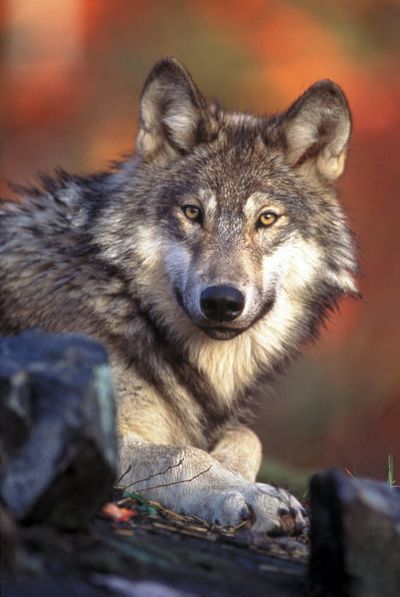Wolf ruling ends plan to hold settlement talks

HELENA, Mont. — A judge’s ruling to restore federal protections for the Rocky Mountain gray wolf has scuttled settlement talks between the parties involved in the lawsuit that had been scheduled for next week.
Instead, organizers will likely have to wait until the furor has died down from U.S. District Judge Donald Molloy’s Thursday ruling before gauging interest in trying again, people involved with the planning said today.
Some are skeptical that there’s not much point to the talks now. After Molloy’s ruling, Idaho wildlife officials canceled their plane tickets to Helena.
“It’s kind of like getting ready to ask a girl to dance, but the music stopped,” said Idaho Fish and Game deputy director Virgil Moore.
The meeting had been set for Wednesday in Helena and would have brought together several of the wildlife advocacy groups that filed the lawsuit, along with officials from Montana, Idaho and the U.S. Fish and Wildlife Service.
There was no settlement offer on the table, but the participants had hoped to find common ground that might lead to ending the lawsuit challenging the Fish and Wildlife Service’s decision to remove Endangered Species Act protections for the gray wolf and turn over management to Montana and Idaho.
“It was basically a discussion of whether there are options as far as a settlement,” said Ron Aasheim, spokesman for Montana Fish, Wildlife and Parks.
The Fish and Wildlife Service’s decision last year only removed federal protections for wolves in Montana and Idaho, while keeping them in Wyoming.
Molloy ruled Thursday that decision did not comply with the Endangered Species Act: The whole Northern Rocky Mountain wolf population must be protected, he ruled, not just those in Wyoming, where state law is considered hostile to the species’ survival.
With the decision likely to be appealed, and several other matters in the lawsuit unresolved, the case is likely to keep going. Plaintiffs attorney Doug Honnold and Montana state officials said a meeting between the parties would still be useful.
The plaintiffs want to talk about reshaping the federal recovery plan for the Northern Rocky Mountain gray wolf to raise the 300 wolves the plan puts as the minimum number for the species’ recovery, said plaintiffs attorney Doug Honnold of Earthjustice.
The wolf population has grown each year since they were reintroduced in the northern Rockies in 1995. There are now more than 1,700 wolves in Idaho, Montana, Wyoming and parts of Oregon and Washington state.
“There a possibility to craft a new recovery plan for wolves that takes into account what we’ve learned on the ground and follows the law, and doesn’t rely on this wolf standard that is obsolete and ignores entirely what we’ve learned 15, 16 years after (the wolves were reintroduced),” Honnold said.
Honnold said he’s hopeful that the meeting can be rescheduled by the end of August.
Aasheim said Montana officials also were hoping “cooler heads prevail” and a meeting could be rescheduled. But Idaho officials appeared more skeptical.
“We didn’t initiate this, we were only going to see what was taking place,” Moore said.
State and federal officials say the judge’s decision puts the spotlight on Wyoming’s management plan, which would classify wolves as predators that could be shot on sight in most places outside the Yellowstone National Park vicinity.
The ruling means that the federal protections will be in place for all three states until Wyoming brings its wolf management program into alignment with Idaho’s and Montana’s, said Tom Strickland, assistant secretary of the Interior for Fish and Wildlife and Parks.
Wyoming has sued the federal government to implement the state plan. Gov. Dave Freudenthal said Friday that he believes Wyoming residents feel betrayed by the Fish and Wildlife Service, which he said “threw us under the bus” and pitted two other states against his.
Pressure from the federal government to change the state wolf management plan, or any new pressure brought on by Idaho or Montana because of Molloy’s ruling, won’t hold much sway in Wyoming, he said.
Rep. Pat Childers, R-Cody, chairman of the legislative committee that helped devise the Wyoming’s wolf management plan, said federal wildlife officials at first accepted Wyoming’s plan but then repudiated it after Molloy criticized it.
Asked whether Molloy’s ruling or statements from feds or officials in the other two states would change opinions in Wyoming, Childers said, “It doesn’t change my mind any. And quite frankly, I think the lawsuit that we had filed against the federal government, our Attorney General’s Office thinks we have a very good case.”